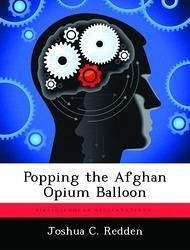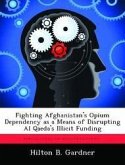The purpose of this paper is to examine the potential for the Afghan government and the International Community (IC) to manage the exploding opium crisis through state sponsored regulation of the Afghan opium crop. The past seven years have demonstrated that the current policies are deeply flawed, and that a different tact will be necessary to solve this dilemma. A carefully managed program will begin to bridge the gap between the central government and the needs of local Afghans, while cutting the purse strings of the many nefarious groups that continue to benefit from the sale and trafficking of Afghan illegal opiates. This paper is prepared by using the problem/solution methodology. Research for this paper will investigate the underlying causes for the opium trade, examine how current anti-drug policies are proceeding, and will present a viable solution to the troubled land of Afghanistan. The sources for the research cover a wide spectrum of available data, and will assist readers in critically assessing the current problems and proposed solution. The future of Afghanistan, once believed to be the bright star in the United State's Global War on Terrorism, is beginning to dim. Since 2006, the Taliban has begun to resurge in the southern and eastern provinces, along with other Pashtu groups (Hizbe-Islami-Gulbuddin, and the Haqqani network); their coffers are buoyed by the sale of the booming opium crops.
Hinweis: Dieser Artikel kann nur an eine deutsche Lieferadresse ausgeliefert werden.
Hinweis: Dieser Artikel kann nur an eine deutsche Lieferadresse ausgeliefert werden.








